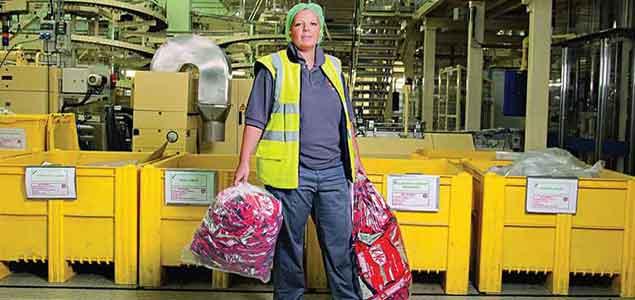
Date: 2024-11-23 Page is: DBtxt003.php txt00005805
Corporate Brands
Nescafe
Beyond waste ... Nestlé on Its Way to Achieving Zero Waste in Europe by 2020
Burgess COMMENTARY
My comment on this webpage
Well ... this is good. But there are a whole lot of other business and trade practices that Nestle should be ashamed of, and held accountable for.The supply chain for some of the more important raw materials that Nestle uses have labor practices that are unacceptable. If Nestle does not know what they are, they are not paying attention. They should visit the cacao growing areas of West Africa for a start.
The way Nestle games the international tax regimes is obnoxious. It is legal, but this large scale avoidance of tax by structuring weird virtual supply chains is dangerously anti-social. Why would Nescafe, a brand from Switzerland, a product of the Cote d'Ivoire being sold in Nigeria be distributed by a subsidiary company of Nestle located in the Caribbean?
Another issue is the question of Nestle and bottled water. I understand that the profits from bottled water are substantial, but the 'trucost' of the plastic bottle is disgusting and Nestle is not being brought to account.
A little bit of good is better than none. But if this little bit of good means that the long time bad behavior of the Nestle group will be ongoing, then this is merely a little bit of 'greenwash'!
Peter Burgess - TrueValueMetrics
Multi Dimension Impact Accounting
http://www.truevaluemetrics.org/DBadmin/DBtxt001.php?vv1=txt20080001
Peter Burgess
Nestlé on Its Way to Achieving Zero Waste in Europe by 2020

Nestlé’s confectionery factory in York reached zero waste in 2011. | Image credit: Nestlé
Nestlé today announced it will achieve zero waste in all 150 of its European factories by 2020, meaning no factory waste will go to landfill or be incinerated without energy being recovered from the process.
“The decision to achieve zero waste illustrates Nestlé’s commitment to environmentally sustainable business practices,” said Laurent Freixe, Nestlé Executive Vice President and Zone Director for Europe. “We already have over 25 factories in Europe that do not dispose of waste into the environment.
“By relentlessly eliminating all sources of waste, or by recycling or recovering energy from unavoidable residues, I am convinced we can achieve the same for all our European operations,” Freixe said.
Cleaning up
Nestlé’s environmental sustainability pledge was made at a European Policy Centre event on food sustainability in Brussels. The food and beverage giant has already achieved zero waste in all of its factories in the United Kingdom and Switzerland.
The first factory to eliminate waste was the KitKat and Aero confectionery factory in the UK city of York in 2011.
By the end of 2012, Nestlé had achieved zero waste status in 39 of its 468 factories worldwide. The candy giant is looking to eliminate waste at every level of its operations.
Recycling coffee
Since its foundation, more than 140 years ago, the company has sought to avoid food waste, beginning by transforming perishable raw materials — such as milk, coffee beans and cocoa — into safe, value-added food products.
Its instant coffee brand Nescafé, for example, was invented 75 years ago as a way of using up coffee beans sitting unsold in warehouses in Brazil. Today, Nestlé uses spent coffee grounds as a source of renewable energy in more than 20 of its Nescafé factories and aims to extend this practice to all Nescafé factories worldwide.
Last month, Nestlé was named the leading food products company in the Dow Jones Sustainability Index with a score of 88%, double the industry average.
The company also achieved the maximum score for the second year running in CDP’s Climate Disclosure and Climate Performance Leadership Indices, and last week landed at #5 on APCO Insight’s list of the 100 Most Loved Companies, which measures consumers’ emotional attachment to brands.